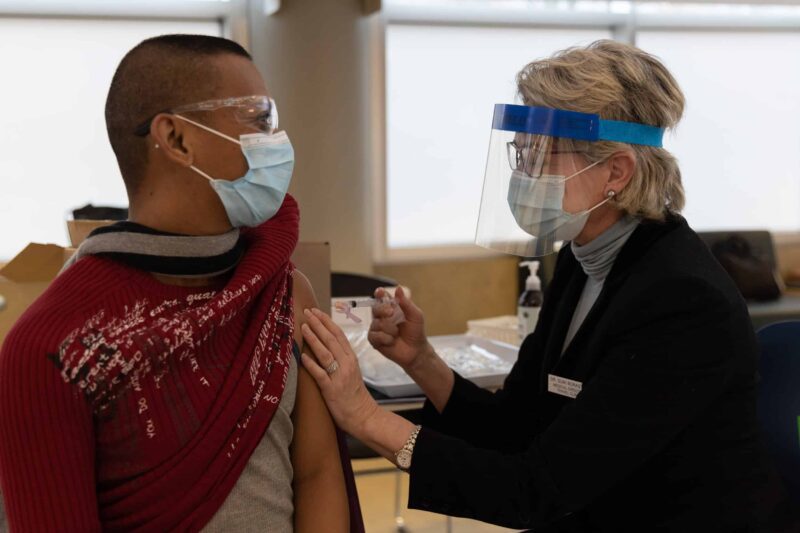Internews submitted written evidence, focusing on vaccine hesitancy and on the vital role local journalists play in vaccine uptake, to ensure that the COVID-19 vaccine is successful and to ensure cooperation in vaccine distribution.
The evidence was submitted in response to a request from the UK Foreign Affairs Committee. The Committee had launched an inquiry into its role in delivering the vision of the UK Prime Minister who had proposed a plan to protect humanity against another pandemic when he addressed the UN General Assembly in September 2020. The Prime Minister announced that the UK would use its G7 presidency to create a “new global approach to health security.”
Internews, drawing on experience from previous epidemics and based on surveys that show people have higher trust in local media, proposes a multi-pronged approach that includes providing local journalists with access to scientific and practical information, taking training into the local media’s newsrooms to help journalists apply skills learned in workshops, supporting those journalists with on-going mentoring, as well as engaging with story development to help build on journalistic and technical skills. Support should also include ensuring media organisations have the financial and business resilience to weather economic challenges, with small emergency grants available at the start of a crisis as well as longer term advice on areas such as business planning and digital security. Internews also emphasizes listening to community concerns and addressing rumors that arise in the local population related to health issues.
“As a media development organisation, Internews believes that trustworthy information is not just important – it can save lives.”
Read the full evidence submitted to the Foreign Affairs Committee by Internews Europe
(Banner photo: British Columbia, Canada rolls out the COVID-19 vaccine. Credit Province of British Columbia)
